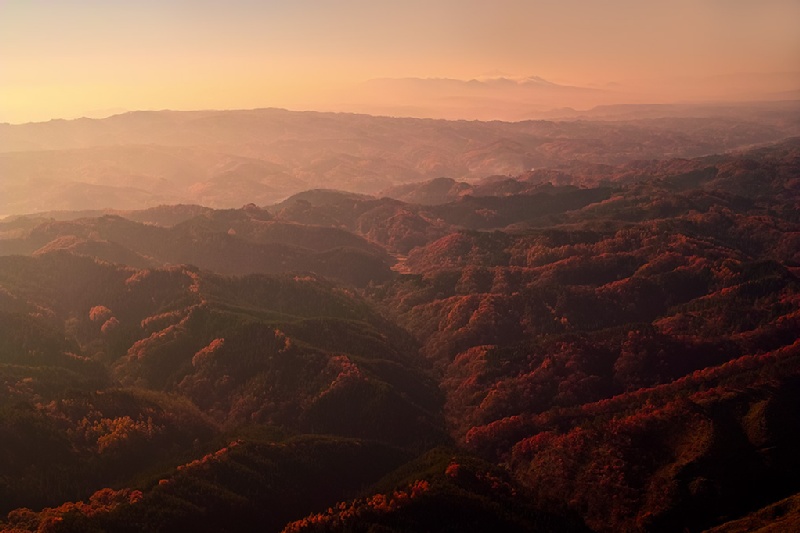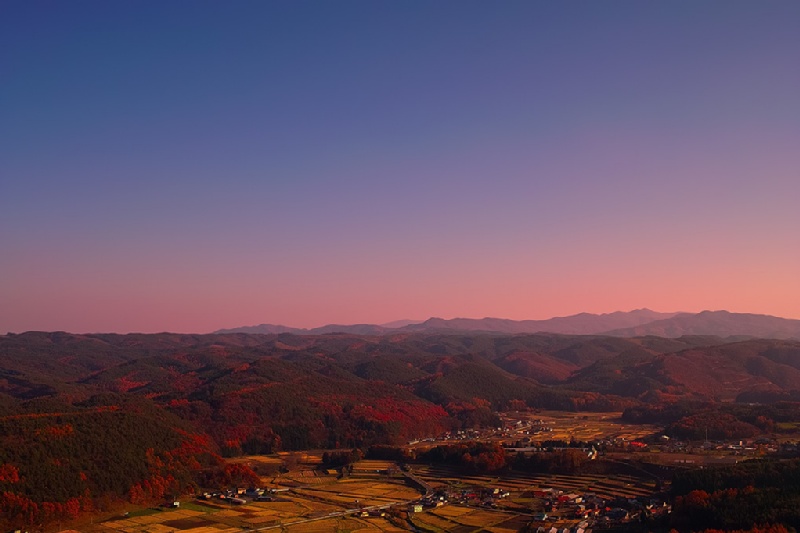Bokusui Wakayama (1885-1928) made lots of songs about and on traveling. Many of his waka reflect the underlying notion about traveling: “あくがる (akugaru)”. This verb originally refers to letting your soul leaving your body, your feeling attracted to something, and your leaving a place you are supposed to be at and starting to roam. Let’s see what he says.
若山牧水は、旅について、また旅の途上で多くの和歌を創作しました。旅について、彼の多くの和歌に見られる考えが「あくがる」です。この動詞が本来意味するところは、魂が肉体を離れること、何かに惹かれること、またあるべきところから離れてさまようこと、となります。彼の和歌を見てみましょう。
けふもまた こころの鉦をうち鳴らし うち鳴らしつつ あくがれていく
Another mile to go today
Let this pilgrim’s handbell ring
Resonant in my mind
Yearning, roaming今日も 巡礼者のごとく 鉦(かね)を心に響かせ 道を求めて行こう
What is striking here is a pilgrimage metaphor. Let’s examine here pilgrimage and then its link to the concept of “Home”. Pilgrimage entails the notion of leaving and touring. Many of the people go on a pilgrimage by leaving their normal lives to find new meanings because everyday circumstances and social contexts seem to some people so restrictive that they feel propelled to break away from what is familiar to them.
ここで目を引くのは、巡礼というメタファーです。まず、巡礼について考え、次に「Home」という概念とのつながりを見てみましょう。巡礼とは、離れることと巡ることに関わってきます。何らかの新しい意味を求めて人は日常の生活を離れるわけですが、自分を取り巻く環境や人や社会との関係のなかで身動きが取れなくなり、なじみのものから逃れることを考えるのです。
Pilgrimage in Japan is usually called junrei, which combines “touring (jun)” and “worshipping (rei)”. Pilgrimage routes are not always designed to visiting a single sacred site but contain several spots religiously linked together in a wider area. More importantly, pilgrimage is not necessarily centered on visiting sacred sites or performing the rituals but on journeying on the pilgrimage path. It is viewed as a journey on a spiritual path towards enlightenment.
日本語での「巡礼」は、「巡(巡る)」と「礼(参拝する)」の二語で成り立っています。巡礼の道は、ある一か所の聖なる地を目指すというよりも、広い地域のなかで信仰上ひとまとまりの参詣場を含んでいます。さらに重要なことに、巡礼は、参詣場や参詣そのものよりも巡礼の道を旅することに重点が置かれているのです。悟りに向かう精神的求道の旅と考えられているのです。
The items along with pilgrim’s handbell mentioned in the song are useful to think about pilgrimage as a spiritual journey from one point to the other. To mark them out as pilgrims, people travel in particular clothing. They wear white pilgrimage shroud that indicates purity and death. The handbell to pilgrims in Japan is what the scallop shell to those to Santiago de Compostela. Pilgrimage shroud and its death symbolism are accompanied by the notion of spiritual rebirth and renewal into this world.
牧水の和歌で詠われている巡礼者の鉦やその服装なども、ある地点から別の地点への心の旅を考えるのに役立ちます。巡礼者だとわかるように、巡礼者は特有の服装に身を包みます。白い帷子は清浄と死を表しています。日本のお遍路さんがもつ鉦は、サンティアゴ・コンポステーラを目指す巡礼者のホタテの殻のようなものです。白い帷子と死の象徴は、この世に再び生まれくる、再生を表しています。
Going on a pilgrimage reflects human condition of restlessness at the root. Pilgrims leave their normal lives and tour around but they are never aimless. They have somewhere specific to get. It will be a physical place or spiritual destination.
巡礼に向かう心理には、しっくりこない人生という状態が根底にありますが、巡礼者は日常を離れて巡礼の道をあちらこちらへ辿るなかでも、決して目標がないということではありません。どこか到達すべきところがあり、それは物理的な地点であったり、精神的に辿り着きたい境地であったりするのです。
The concept of pilgrimage as a life journey helps us understand the concept of “Home”. At some point of your life you might have to leave your home, not knowing if there is any other place like home. You might move out, move abroad. You might not be able to continue to live where you have lived for years. You might leave your family behind. Oftentimes you feel that your body has moved out of your familiar circle but your heart won’t leave and stays there. Practically, however, you need to construct your life at a new location physically and psychologically. You need to move on dragging your anchor.
巡礼の旅を人生の旅になぞらえることで、「Home」という概念も考えることができます。人は人生のある時点で、行くあてもなく家を離れなくてはいけないことがあります。親元を離れたり、国外に住んだり。何年も暮らしたところに住み続けることができなくなったり、家族を後に残したり。なじみの居場所を身体は離れても、心は離れたがらず、心を残してくることもあります。しかし、現実的には、物理的にも心理的にも新たな土地で人生を築き上げなければならなくなります。
When you go on a travel, you leave your home, leaving behind what you feel secure, comfortable and attached with. Anticipations of being in a foreign land will cause a contradiction. You are probably excited about new experiences, but at the same time, you expect a dash of familiarity. You often see people stopping at Starbucks or McDonald’s during their trip or Japanese people searching for an authentic Japanese restaurant. You are pulled into two different directions of leaving and staying home all the time.
旅に出るとき、安心できて落ち着ける、愛着を感じるものを残し家を出るわけですが、旅先への期待も相まって葛藤が生まれます。新たな経験への期待と同時に、なじみのものもわずかに望んだりもするのです。自分の国はもちろん世界中にあるチェーン店に結局立ち寄ってしまったり、日本人であれば生粋の日本料理屋を海外で探してしまったり。自分にとって居心地のいい場所を離れようという気持と留まりたいという相反する気持ちに常に引っ張られるのです。
These inner conflicts are reflected in Bokusui’s works. Despite his love of his homeland, he always wants to see new places. In warmth and comfort you are savoring, you are in throes of seeking new horizons. “Akugaru (leaving and yearning)” can be viewed as shuttling between these two different dimensions, and then being in the attempt.
こうした葛藤が、牧水の作品にも表れています。自分の故郷を愛していても、新たな土地を求める自分がいる。今享受している温もりと安らぎの中で、未知の地平を求める気持ちに苦しむ。「あくがる」とは、こうした二面性の往還であり、それを希求する試みという意味をなすこともできるでしょう。
We have looked into the concept of “Home” so far by several different perspectives and reached the point of seeing another concept “In The Attempt”, which is going to be the topic we discuss in the next series.
ここまで「Home」という概念について様々な視点から考えてきました。そして今、「In The Attempt」という別の概念に辿り着きました。それを次に考えていきましょう。
| Series: In Search of Home
Moon Palace: In Search of Home |

